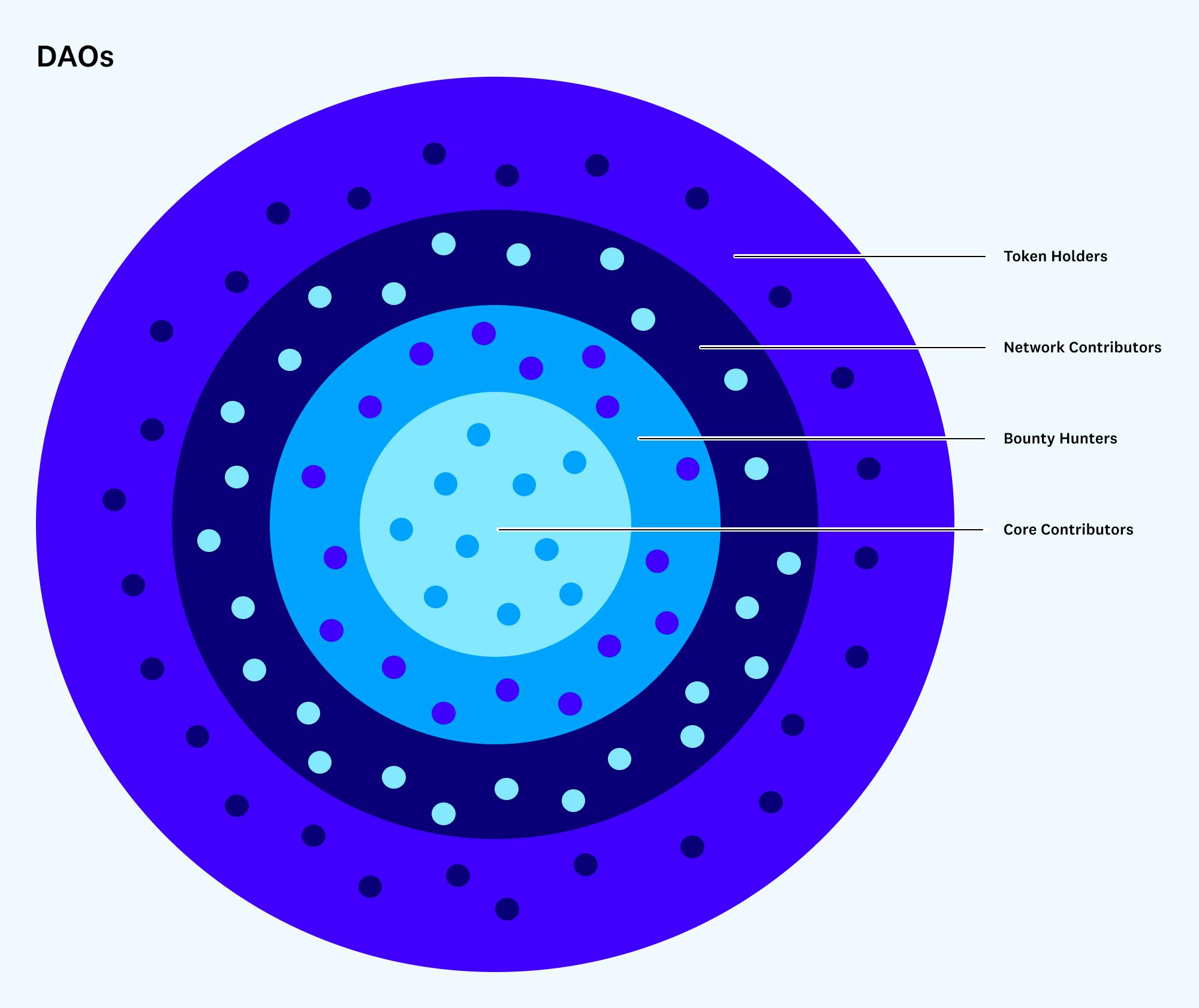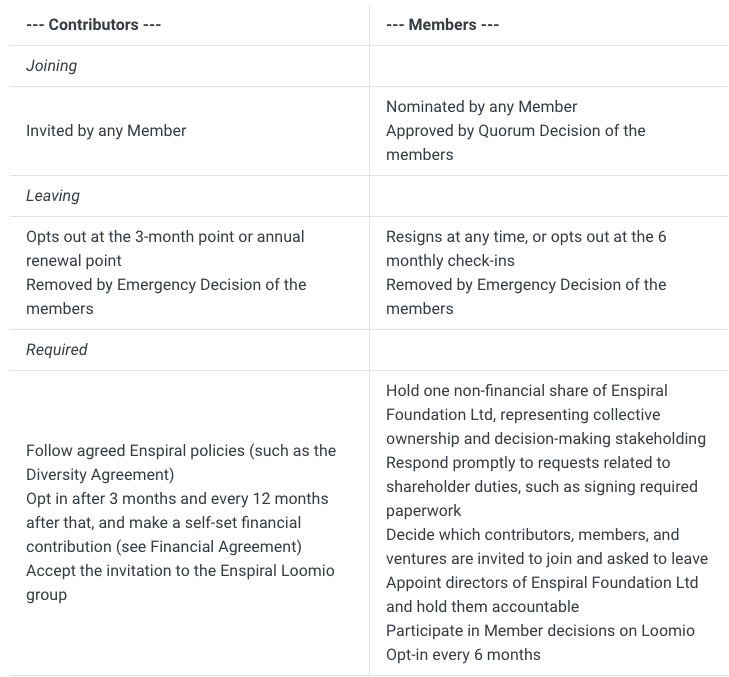The contribution spectrum
One of the powerful governance innovations that DAOs systematized was breaking the dichotomous “you’re either in or you’re out” approach to community membership into a more robust and granular engagement spectrum:

It provides a more gentle path for getting involved in a community and natural stopping points for community members who don’t want to go “all in”. In a world where we’re no longer just members of the single community that we were born into, but instead members of a myriad of globe-spanning communities, this is essential to tapping the broad talent pool that DAOs wish to engage.
Maintaining the principle of proportionality, different levels of community memberships come with their own set of rights and responsibilities:

Key of such benefits is the ability to participate in the DAO’s decision-making process through both deliberation and voting. Key of such responsibilities is the expectation to remain engaged in the DAO and continue to make contributions to the betterment of the DAO.
A very human complication
Most DAOs do a good job defining the trigger points for transitioning from an outer to an inner membership circle - be it holding a certain amount of the governance token or being voted into a contributor role.
The transitions in the other direction are often poorly defined and poorly enforced. This creates an unhealthy dynamic in DAOs where community members with higher/inner status benefit from the rights and privileges associated with that status, but don’t fulfill the responsibilities they are expected to carry.
It is easy to understand how we got here. Numerous socio-neurological theories (SCARF) validate our craving for status, while others (endowment effect, loss aversion) explain why we are reluctant to lose it, or give it away, once we have it. The systems we created are a reflection of our human nature.
A structural path for a solution
What then can we do to combat this very human tendency? We can create structures that make the desired behavior easier to do, and the undesired behavior harder to do.
The first, and perhaps most fundamental structural change is the decoupling of an economic stake in the DAO and a governance (voting) stake in the DAO. While early adopters in both traditional orgs (Steward Ownership) and DAOs (DAOhaus) have put this to practice, there is still a strong and popular default to keep them coupled.
The other is to create a strong mechanism that by default pulls participants towards a lower status tier, working against our natural tendency to hold on to status, and requiring intentional higher effort in order to maintain a higher status.
Here, a perhaps surprising source of inspiration can be found in the design principles of many Frequent Flier programs commonly used by airlines to solve a similar challenge:
- There is a defined period of time in which a member’s contribution is measured - most commonly the number of miles or segments flown in a given year with the airline.
- Meeting a certain threshold of this measure entitles the passenger to a set of privileges in the next time period - such as preferred boarding and free upgrades.
- By default, the status, and benefits are lost in the subsequent year, unless the passenger continues to meet the threshold measured.
- There’s also no exclusivity requirement - a passenger can have a frequent flier status with multiple airlines as long as they’re meeting the contribution requirements.
The transactional relationship between passengers and airlines makes it easier to define a simple contribution measure and anchor the status management program around it. DAO contributions are more nuanced, and will likely require a more complex, balanced scorecard approach, that would still be imperfect - but still a significant step up from the mechanism, or lack thereof, that many of us are using today.